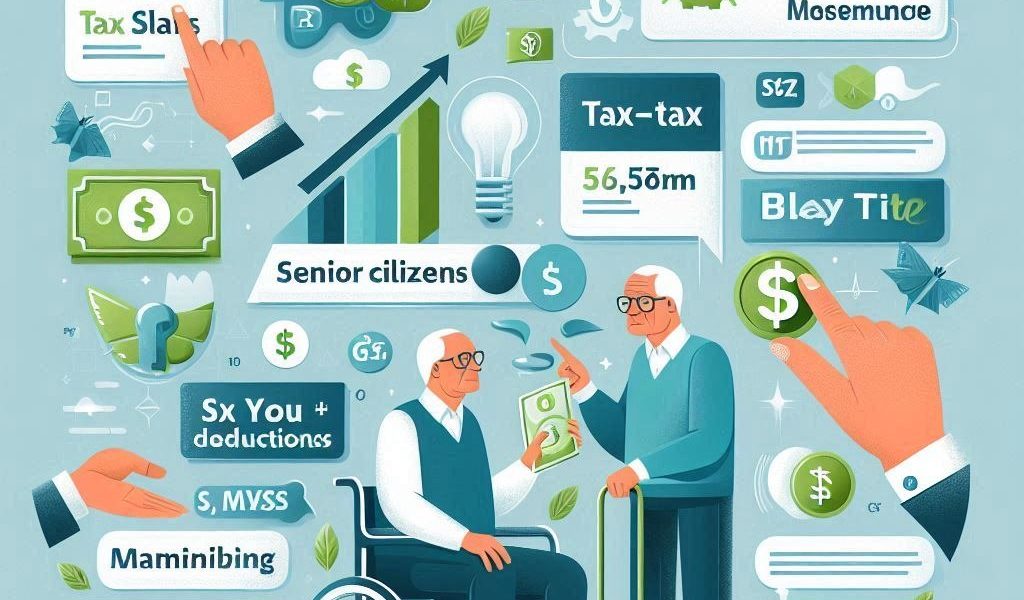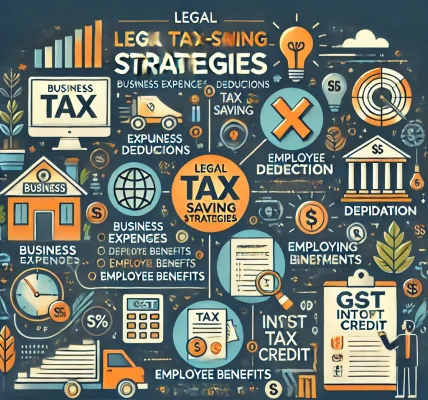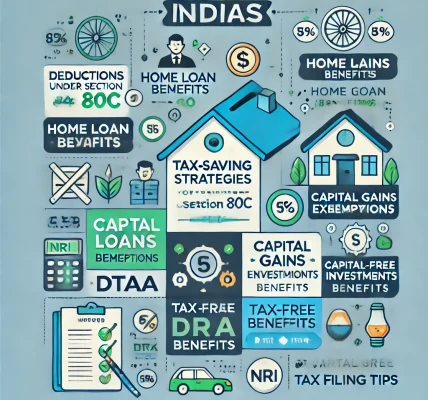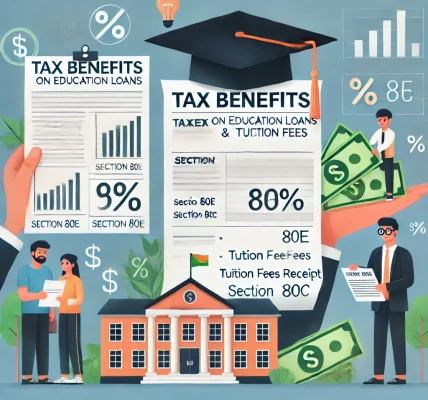Introduction
Retirement brings a shift in income sources, making tax planning essential for senior citizens. With the right strategies, retirees can minimize tax liabilities and maximize savings. In India, the government provides multiple tax benefits to senior citizens, including higher exemption limits, deductions on medical expenses, and tax-free investment options.
This guide will walk you through key tax-saving strategies for senior citizens, ensuring compliance with Income Tax laws while optimizing retirement savings.
1. Understanding the Income Tax Slabs for Senior Citizens (FY 2023-24)
The Income Tax Act defines two categories of senior citizens:
- Senior Citizens (60-79 years)
- Super Senior Citizens (80+ years)
Tax Slabs for Senior Citizens (60-79 years)
| Income Slab | Tax Rate |
|---|---|
| Up to ₹3,00,000 | Nil |
| ₹3,00,001 – ₹5,00,000 | 5% |
| ₹5,00,001 – ₹10,00,000 | 20% |
| Above ₹10,00,000 | 30% |
Tax Slabs for Super Senior Citizens (80+ years)
| Income Slab | Tax Rate |
| Up to ₹5,00,000 | Nil |
| ₹5,00,001 – ₹10,00,000 | 20% |
| Above ₹10,00,000 | 30% |
New Tax Regime (Optional)
Senior citizens can opt for the New Tax Regime, which offers lower tax rates but eliminates most deductions and exemptions. A careful analysis should be done to choose the most beneficial option.
2. Essential Tax Deductions for Senior Citizens
a) Higher Basic Exemption Limit
- Regular taxpayers have an exemption limit of ₹2.5 lakh, whereas senior citizens get ₹3 lakh and super senior citizens get ₹5 lakh.
- Income up to ₹5 lakh is tax-free due to the rebate under Section 87A.
b) Section 80TTB – Higher Interest Income Exemption
- Senior citizens can claim a deduction of up to ₹50,000 on interest earned from savings accounts, fixed deposits (FDs), and recurring deposits.
- This is applicable to interest earned from banks, post offices, and cooperative banks.
c) Section 80D – Medical Insurance Deduction
- Senior citizens can claim up to ₹50,000 as a deduction for health insurance premiums.
- If medical expenses are incurred for uninsured senior citizens, they can still claim up to ₹50,000 as a deduction.
d) Section 80C – Investments for Tax Savings
- Senior citizens can avail deductions up to ₹1.5 lakh by investing in:
- Senior Citizens’ Savings Scheme (SCSS)
- 5-year Tax Saving Fixed Deposits
- Public Provident Fund (PPF)
- Life insurance premiums
e) Section 80DDB – Deduction for Medical Treatment
- Senior citizens can claim up to ₹1 lakh for treatment of specified diseases like cancer, Parkinson’s, and chronic kidney disease.
- Requires a certificate from a specialist.
f) Exemptions on Reverse Mortgage
- Senior citizens opting for a Reverse Mortgage Loan can receive regular payments from banks without tax liability.
3. Best Tax-Saving Investment Options for Senior Citizens
a) Senior Citizens’ Savings Scheme (SCSS)
- Interest rate of 8% per annum (as of 2024).
- Eligible for deduction under Section 80C.
- Maximum investment: ₹30 lakh.
b) Pradhan Mantri Vaya Vandana Yojana (PMVVY)
- Offers guaranteed pension with 8% returns.
- Investment limit: ₹15 lakh.
- Interest is taxable, but pension is a reliable income source.
c) Tax-Free Bonds
- Government-backed bonds that offer tax-free interest income.
- Best for risk-averse investors.
d) Post Office Monthly Income Scheme (POMIS)
- Provides fixed monthly interest.
- Interest is taxable, but no TDS is deducted.
4. Tips for Efficient Tax Planning
✅ Choose Between Old and New Tax Regime Wisely
- The old tax regime is beneficial if claiming 80C, 80D, and 80TTB deductions.
- The new regime may be preferable for retirees with low deductions and multiple income sources.
✅ Invest in Tax-Free Instruments
- Prefer tax-free bonds, SCSS, and government schemes for better returns.
- Opt for tax-free FDs (under 80C) if investing in bank deposits.
✅ Avoid TDS on FD Interest
- Submit Form 15H to banks to avoid TDS deductions if total income is below taxable limits.
✅ Claim Medical Deductions Effectively
- Keep proper documentation of medical bills and health insurance payments.
- Utilize 80D and 80DDB deductions to the fullest.
✅ Optimize HRA if Staying in a Rented House
- If living in a rented property, claim HRA exemption for tax benefits.
5. Common Mistakes Senior Citizens Should Avoid
❌ Not Filing Tax Returns If Below the Taxable Limit
- Even if income is below the taxable limit, filing an ITR (Income Tax Return) helps in loan approvals and refund claims.
❌ Not Considering Inflation While Investing
- Avoid keeping excess cash in savings accounts; invest in SCSS, PMVVY, or mutual funds.
❌ Ignoring Medical Insurance
- Health expenses increase with age. Always keep adequate health insurance to avoid financial strain.
Conclusion
Tax planning in retirement is crucial for financial security. By leveraging available tax benefits, choosing the right investment options, and avoiding unnecessary tax burdens, senior citizens can enjoy a stress-free retirement.
Key Takeaways:
✅ Use Section 80TTB to save tax on interest income. ✅ Claim medical insurance premiums (₹50,000 under Section 80D). ✅ Invest in SCSS, PMVVY, and tax-free bonds for steady income. ✅ Choose between Old and New Tax Regime wisely. ✅ Submit Form 15H to avoid unnecessary TDS deductions.




